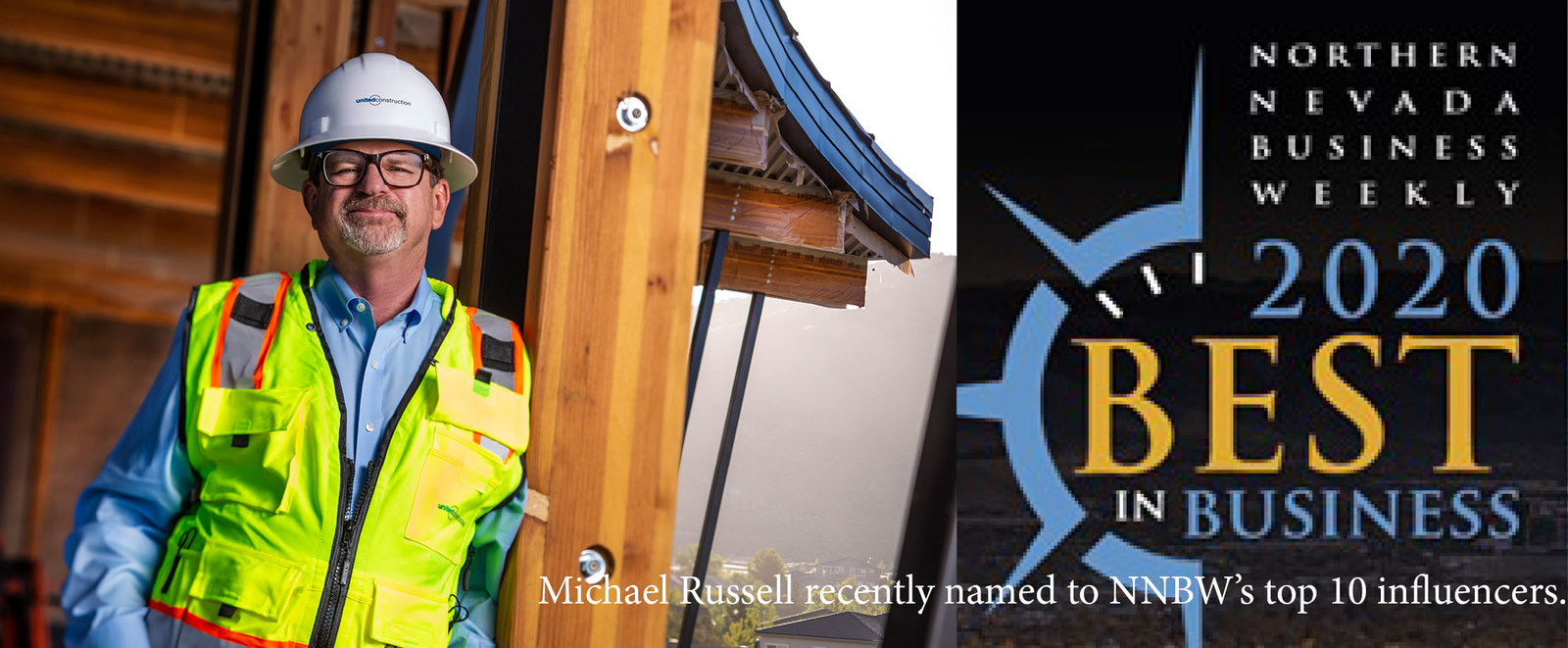21 Apr CEO Michael Russell discusses state of the construction industry
The Northern Nevada Business Weekly spoke with representatives from four contractors in Northern Nevada, including our very own Michael Russell. Michael spoke about the construction industry as it stands today, especially as the pandemic lingers on, and the opportunities that are imminent. Read his Q&A below, pulled directly from the NNBW article:
Question: What is the biggest difference in how your company assesses a job now versus before the pandemic?
Answer: The biggest difference for us is to focus on communicating our policies and procedures for the COVID response with our customers and incorporating language into our contracts, which allows us to react in unnecessary manner. There have been a few COVID delays in some of our projects, nothing major. But we have had a few impacts on a few projects where people showed up to the job site, and maybe had exposures or came up with COVID. So, we’ve had to do all the things that you’d have to do when you get exposed — sometimes stop the work for a few days till we can contract trace and figure out who’s exposed, who’s been exposed, etc. Really, it’s just communicating with all of our stakeholders and making sure our customers are aware of some of the impacts when they occur.
Q: What are the top challenges and opportunities facing your industry in 2021 and beyond?
A: For opportunities, this year — and probably for 2022 — there’s a very high demand for new industrial buildings, which is the bulk of our type of construction. That demand has been driven by the acceleration due to COVID of more goods being bought online and having to be delivered to people’s houses. That’s been driving our market sector property heavily. We’re as busy as we’ve ever been and we have more projects in the pipeline than we’ve ever had in terms of industrial. The main challenges we’re facing nowadays is steel and wood and plastic products have all become in high demand. Manufacturers right now have way more demand than they can actually manufacture and supply, so lead-time to getting materials to job sites is stretching out. In addition, there are cost escalations going on in the marketplace based on the inverted supply-demand ratio right now. And then thirdly, the top challenges and opportunities we have is finding and hiring quality people. Our business here locally is kind of limited because we have a small population. Companies like ours have to kind of sit back and balance our resources, because we can’t take on necessarily everything we get an opportunity to look at, so we have to look at our resources to make sure that we can perform the work without killing our people with overtime. So, that’s a kind of balancing act right now for a lot of companies here.
Q: With the need for masks, social distancing and other measures, how do you address safety in the workplace differently now?
A: We follow the Washoe County Health Department and CDC guidelines. And additional to the traditional safety items, we also ensure the proper use of personal protection equipment, and social distancing, health assessments, proper sanitation facilities, and cleaning protocols. We’re reducing meeting sizes or changing locations to safely support larger groups, as well as additional documentation to record those efforts and support possible contact tracing as necessary. And we’re communicating that with our field staffs on a regular basis. Our field supervision project control teams are well-versed in these requirements; they’re on top of this stuff every day at the job site.



